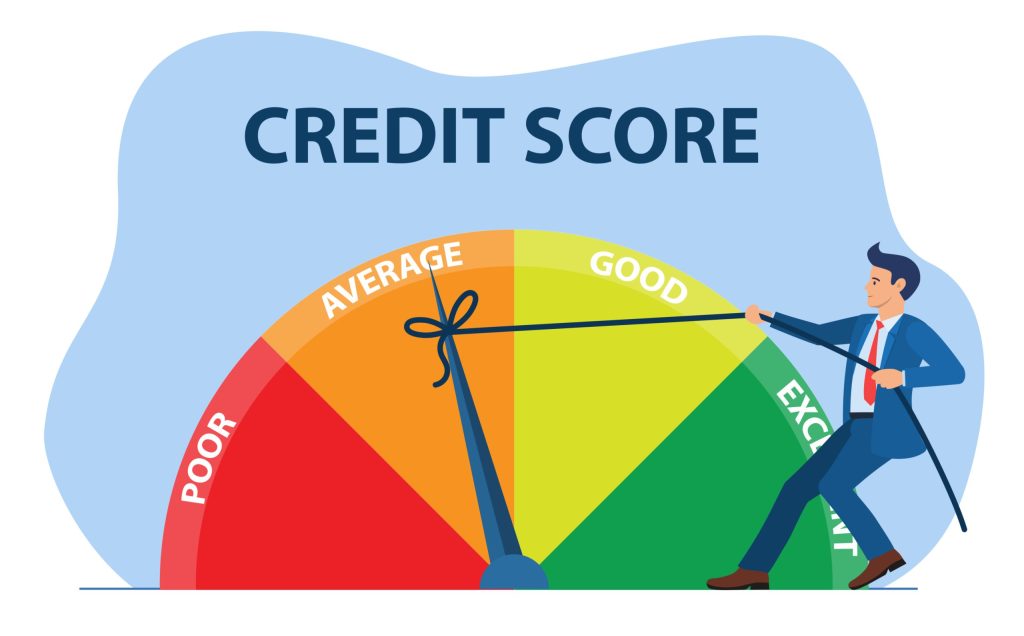Tips
Understanding Credit Scores: A Key to Financial Well-Being
Advertisement

Credit scores play a crucial role in today’s financial landscape, impacting our ability to secure loans, obtain favorable interest rates, and access various financial opportunities. In this essay, we will delve into the concept of credit scores, how they are calculated, their significance, and provide insights on how to improve and maintain a healthy credit score.
What is a Credit Score?
A credit score is a three-digit numerical representation of an individual’s creditworthiness. It is a statistical assessment that predicts the likelihood of a person repaying their debts based on their credit history. The most commonly used credit scoring models are FICO® Scores and VantageScores, which range from 300 to 850.
You will be redirected to another website
By submitting this form, I agree that I am 18+ years old and I agree to the Privacy Policy and Terms and Conditions. I also provide my signature giving express consent to receive marketing communications via automated emails, SMS or MMS text messages and other forms of communication regarding financial products such as credit card and loans. Message frequency varies and represents our good faith effort to reach you regarding your inquiry. Message and data rates may apply. Text HELP for help or text STOP to cancel. I understand that my consent to receive communications is not a condition of purchase and I may revoke my consent at any time.
Factors Affecting Credit Scores:
Credit scores are determined by several key factors, including: a) Payment History: Timely payment of bills and debts. b) Credit Utilization: The percentage of available credit being utilized. c) Length of Credit History: The duration of credit accounts. d) Credit Mix: The variety of credit accounts (e.g., credit cards, loans, mortgages). e) New Credit Applications: The number of recent credit inquiries and newly opened accounts.
Importance of Credit Scores:
a) Loan Approval: Lenders use credit scores to assess the risk of lending money. A higher credit score increases the likelihood of loan approval.
b) Interest Rates: A good credit score often translates to lower interest rates, potentially saving borrowers thousands of dollars over time.
c) Insurance Premiums: Some insurers consider credit scores when determining premiums, as they view responsible financial behavior as an indicator of responsible behavior in other areas.
d) Rental Applications: Landlords often check credit scores to assess an applicant’s reliability in paying rent on time.
e) Employment Opportunities: Certain employers may review credit scores to evaluate an individual’s financial responsibility and trustworthiness.
Strategies for Improving Credit Scores:
a) Pay Bills on Time: Consistently meeting payment deadlines is one of the most crucial factors in maintaining a healthy credit score.
b) Reduce Credit Utilization: Aim to keep credit card balances below 30% of the available credit limit.
c) Maintain a Mix of Credit: Demonstrating responsible management of various types of credit can positively impact credit scores.
d) Avoid Opening Multiple New Accounts: Opening numerous accounts within a short period can negatively affect credit scores.
e) Regularly Check Credit Reports: Reviewing credit reports allows individuals to identify errors and dispute any inaccuracies that may harm their credit scores.
Maintaining a Good Credit Score:
a) Monitor Credit Utilization: Keeping credit utilization low and paying off balances in full each month can help maintain a good credit score.
b) Avoid Closing Old Accounts: Length of credit history is an essential factor, so keeping older accounts open, even if unused, can be beneficial.
c) Be Cautious with New Credit Applications: Applying for credit sparingly reduces the number of hard inquiries on credit reports, which can impact scores.
d) Regularly Review Credit Reports: Monitoring credit reports ensures the accuracy of information and enables prompt identification of any issues or fraudulent activity.

Conclusion:
A credit score serves as a financial snapshot, influencing our access to loans, interest rates, and other financial opportunities. Understanding the factors that impact credit scores and implementing strategies to improve and maintain them is crucial for long-term financial well-being. By practicing responsible financial habits, individuals can pave the way to a solid credit score and open doors to a wide range of financial possibilities.
Trending Topics

Wells Fargo Reflect® Card: Low APR credit card
The Wells Fargo Reflect® Card is a great choice for those looking for a long period of 0% APR. Check the full review and see how it works!
Keep Reading
Universal Credit Personal Loan review: Up to $50,000
Ready to level up your finances? Explore the magic of theUniversal Credit Personal Loan in our review, where financial dreams come true.
Keep Reading
U.S. Bank Altitude® Go Secured Visa® Card Review: Go further!
A tool like the U.S. Bank Altitude® Go Secured Visa® Card will surprise you with its benefits that go beyond the obvious
Keep ReadingYou may also like

Best Egg Personal Loan Reviews: Cracking the Code to Smarter Borrowing!
Get the scoop on Best Egg personal loans in our comprehensive review. Learn about their low rates, fast funding, and customer-friendly terms.
Keep Reading
